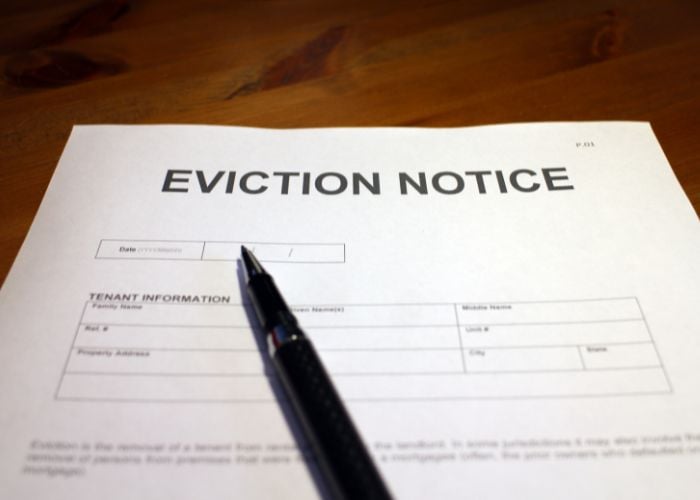What Are the Legal Steps to Evict a Tenant?
The legal process of eviction in South Africa must comply with the Prevention of Illegal Eviction from and Unlawful Occupation of Land Act 19 of 1998 (PIE Act). It is not only recommended but often necessary to use a property lawyer in cases of tenant evictions, for the best possible results. Need to evict a tenant? RC Smith and Associates can help. We are experts in property law and understand how stressful this process can be. Trust us to provide a lawful eviction service when it matters most.
If possible, we suggest first trying to resolve the issue with your tenant before taking legal action. An amicable resolution can save you time and money. If you’re dealing with a difficult tenant who won’t comply, you will need to follow the legal eviction process, that’s where we come in. Our team manages all paperwork, legal procedures, and court processes to help you regain possession of your property. To initiate the eviction process, fill in our Eviction Services Client Interest form, which gives us useful insight into your specific situation, so that we can assist you in the best possible way.
The Legal Process for Eviction
Step 1: Give Written Notice (Lease Breach or Termination)
By law, you must provide a written notice to cancel the lease. You can do this:
- After the tenant breaches the lease (e.g., does not pay rent); and
- If the tenant fails to rectify the breach after receiving a warning (usually 20 business days, per the Consumer Protection Act for fixed-term leases).
If the tenant still does not vacate, this is a good time to contact us for legal assistance in starting the eviction proceedings.
Step 2: Apply for an Eviction Order (High Court Process)
We can assist you to file an application for eviction of the tenant at the High Court. This is what we will need from you:
- Proof of property ownership;
- Copy of the tenant’s lease;
- Proof of lease cancellation/any other notices sent; and
- Evidence that your tenant is occupying unlawfully.

Step 3: Serve Court Papers Correctly via the Sheriff
Once the court sets a hearing date, you must give the tenant at least 14 days’ notice before the hearing. This notice is served to your tenant by the Sheriff of the Court – you cannot intervene by attempting to change locks or by cutting off utilities, for example, this is illegal according to the PIE Act.
Step 4: Attend the Court Hearing
At the hearing, we can help you present your case, and your tenant will also be able to present their case (they also have the option for legal representation). The judge will consider:
- Whether the tenant is unlawfully occupying the property;
- Whether proper procedures were followed; and
- The tenant’s personal circumstances.
Step 5: Court Outcome
If successful, the court will issue an eviction order with a specific date by which your tenant is required to vacate. Occupiers with children, disabled, or elderly family members receive special consideration. This could delay the eviction, giving the occupiers time to find alternative accommodation. Alternatively, the municipality may even assist with relocation or find emergency accommodation.
Step 6: Enforcement by the Sheriff
This step can be avoided if the occupier(s) vacate the property by the date set in the court order. If they do not, the sheriff will physically remove them and their belongings from the property. Remember, you may not intervene or enforce this action yourself, it would be considered illegal.
At RCS Law, our eviction lawyers offer professional and affordable services that put you first. We also specialise in Commercial & Trust Law, and offer legal and professional Wills & Estate services. To get started, contact us or simply complete our Eviction Services Client Interest form.
